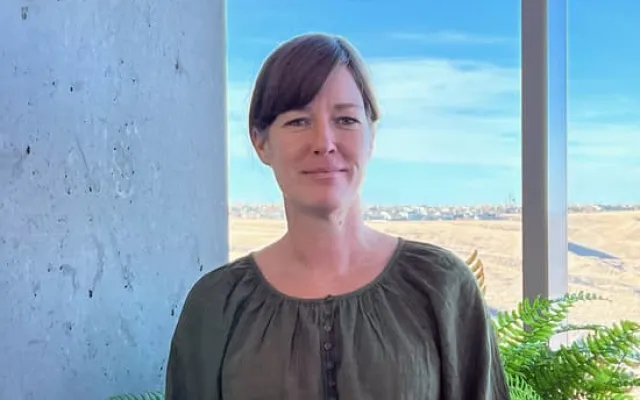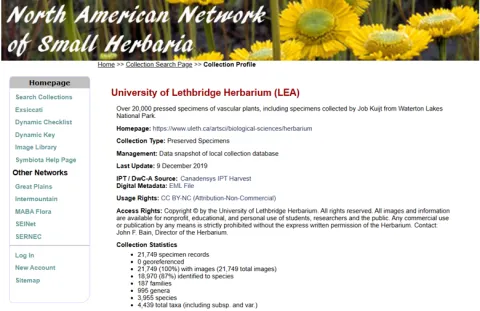About Us
The Herbarium has a team of hard-working students, professors, instructors, and volunteers that make our herbarium run smoothly. We are dedicated to documenting and digitizing the regional flora, exclusive of non-vascular plants. The University of Lethbridge herbarium is a repository of preserved collections for teaching and research. Our voucher specimens and metadata can be accessed online or by request.
Established to promote the collection, preservation, education, and research of plants, LEA was founded by Dr. Job Kuijt in 1968 and is currently managed by Dr. John Bain. Our collection contains more than 22,000 specimens, all of which have been digitized and remain an important research tool for botanists, ecologists, students, and the general public.
Located on the 7th floor of the University of Lethbridge's newest building, the Science Commons.
We are also proud to have our presence on SEINet, under the Canadian Herbaria and North American Network of Small Herbaria (NANSH), online portals powered by Symbiota, a platform designed to aggregate herbarium data into one user-friendly database.
Figure: A screenshot of the NANSH portal that our herbarium has been included in. Here researchers can access multiple herbaria databases all in one place. These portals are all powered by Symbiota.
The Team
Here at LEA we are constantly recruiting new students and volunteers to join our team! Meet our current Herbarium Director and Curator, as well as others that have made LEA what it is today.

Dr. John F Bain
Professor Emeritus Department of Biological Sciences
Volunteer Herbarium Director
Email: bain@uleth.ca

Trinie Chisholm, MSc
Herbarium Curatorial Assistant/Plant Ecology Research Technician

Jenny Burke
Instructor, Department of Biological Sciences
Office: SA9230
Phone: (403) 329-2321
Email: jennifer.burke2@uleth.ca

